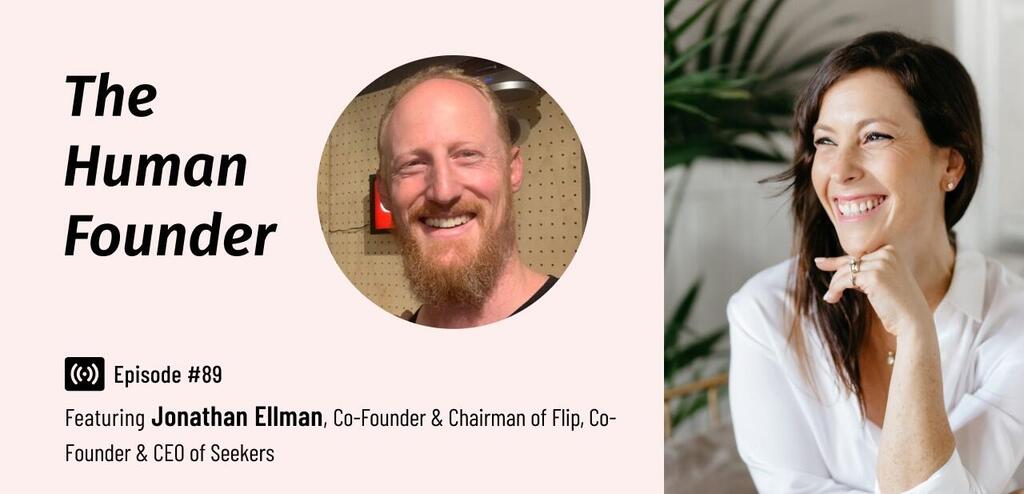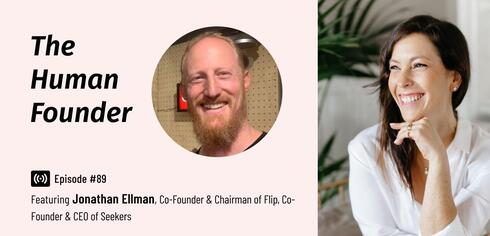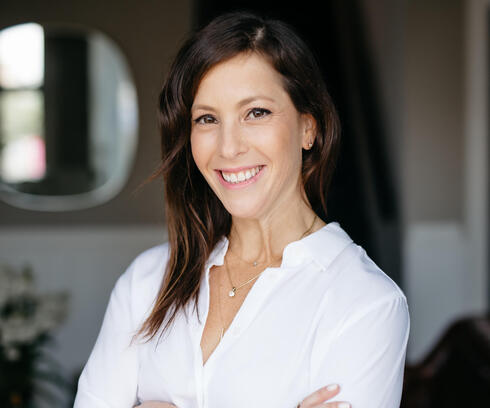
The Human Founder
How to build 7 tech companies in 15 years whilst finding your center as an entrepreneur?
As part of her day job, Executive Coach Gali Bloch Liran helps founders, CEOs, and investors develop the right skills and mentality. Her podcast takes us through the roller coaster of vulnerability, humanity, and the personalities of these "top dogs" of business and tech
Being a founder, not to mention a CEO, can be a very lonely place, carrying loads of stress and requiring constant peak performance. This often makes it hard to find a balance between one's professional and personal life. Maintaining strong relationships with the co-founders and investors is also not an easy task, where clarity and empathy are not always present. As one of my entrepreneurs says: “It’s not the technological challenge we deal with, it’s the mental one.”
“Throughout my +15 years as a professional, I've always been attracted to the intersection of business and psychology through entrepreneurship - What makes people tick? How do people think and act? And what motivates people in business? What drives me is being there for the amazing entrepreneurs, who are under constant pressure, so that they can make our world a better place. That’s what I’m here for, and this is my podcast – The Human Founder.”
Learning how to fit in in different cultures
Jonathan was born in South Africa but migrated to the US at the age of 7, which was a pivotal point in his life. Knowing such different places and cultures from a young age gave him a more open and global perspective on the world.
This also means learning how to get along socially in different environments: “I remember showing up to my first day at school with a neon green shirt, neon blue pants, multi-colored socks, bright orange hair and a heavy South African accent, and everyone was wearing a white t-shirt and jeans…”
Those differences didn’t really help him get along with the other kids in the beginning - he stuck out like a sore thumb.
Luckily, his attitude made others treat him differently: “I learned to take people’s humor where they could ridicule and make fun of me and work with it, and not just simply absorb it as an attack on who I was.”
He described using the Aikido method of Morihei Ueshiba, where you work with hostile energy from other people in a different way from what’s expected;
Rather than treating it like a boxing match, where you try to block the ‘opponent’ and attack with greater force, you use the energy of your opponent to your advantage.
Jonathan used it through acknowledging their initial ‘attack’ and hostile energy and not getting defensive by it, but actually working with their assumptions around him to make them understand him more.
If he would just get offended or attack them back they would never be able to relate to him and understand him, but when he used their humor to disarm them he redirected their aggressive energy towards another center, and he gained their trust.
Besides that, Jonathan believes you shouldn't care that much about what others think of you, whether it’s other people or companies: “Not from a place of disrespect to them, but from respecting oneself.”
In those days of his childhood, he also learned to reconnect to himself through climbing trees, sitting there at the top and breathing the fresh air.
Unfortunately, he shared, for 20 years he would forget that ability and feel disconnected from himself often, caring too much about what others think instead of focusing on his own thoughts and beliefs.
What helped him center himself again years later was meditation: “I relearned who I was. I remembered the depth of who I am as an individual”.
I (Gali) think it’s a feeling we can all relate to - being lost as an adult and searching for an answer, only to find out it was something that we already knew instinctively as kids and abandoned over the years. Rather than learning, the movement is more towards reconnecting into what’s inside of us that we didn’t acknowledge before. It’s a difficult journey, but a beautiful one.
The opportunity to wake up and find yourself
I asked Jonathan about the connection between finding your true center and asking yourself the right questions to being an entrepreneur.
He answered: “I think entrepreneurs are uniquely positioned to hit those walls more than other people are, because of the difficulties of building a startup, failing, and doing it again - it makes you question yourself much more than other professions will afford you to do.”
Sometimes, as much as we might hate it, doubt can be a good thing. It’s not about knowing everything right from the beginning, but having the ability to ask the tough and important questions, to be willing to change and be surprised.
This ability is a must, especially as a founder.
I (Gali) think one of the big secrets that no one tells founders in the beginning of the way, is that the real challenging part of this journey won’t be raising the funds, but will come from inside yourself. The highest walls you must break come from within.
It might sound gloomy, but as Jonathan said: “Once you turn that switch of knowing you can do it - it’s turned for life, and that’s the key.”
A wake up call
When their son was only at the age of 2, Jonathan and his amazing wife Na’ama found out he had a brain tumor. Jonathan called it a ‘wake up’ point for him. It was an extremely difficult time for them, being with him while he went through 7 different surgeries, and 3 times where he almost died. He shared: “I remember when we came out from the hospital, I said to myself: if he can win this war, I need to prove to him that I can do something great.”
And so, immediately after he started working on one of his companies, Flip.
A year later they went for a checkup, and like a punch right to the stomach they found out that the tumor is back, and they need to come back to the hospital for another round of brain surgeries.
As a father, Jonathan always imagined him and his son climbing Machu Picchu together when he would be older, but suddenly, he wasn’t sure about his own abilities to achieve that. He looked at himself through 5 verticals: physical, mental, emotional, psychological and spiritual - “I realized I was running on empty in each one of the categories.” He found an exhausted man in the mirror - the boy that he was once was lost somewhere, he realized he forgot about him again.
Luckily, Jonathan’s son healed, but that rock bottom started a journey of rediscovering himself so that he can be the best person and the best father he could be.
Are you a founder and/ or an entrepreneur?
Jonathan explained that one of the biggest things that determine one's success is: “Are you willing to fail, and do you learn from your mistakes?”
When I asked him about one thing he learned from failing, he said: “As an attempted Angel investor, a clear failure was any time I invested in a founder and tried to make him an entrepreneur, and on the flip side, success is every time I invested in an entrepreneur and pushed him over the edge to become a founder.”
He explained that when things get tough (and they always do), if you’re a founder who’s not an entrepreneur, you’ll just run out the door. The entrepreneur has the ability to execute - “Everyone has a million dollar idea. The question is - can you actually build that idea into a company?”
Today, at Seekers, Jonathan and his co-founders want to help humans own their emotional fitness, and seek their inner self through life.
This episode is in loving memory of Micha.
Gali Bloch Liran is the Founder & CEO of The Human Founder; Executive Coach & Startup Advisor; Entrepreneurship Lecturer at Reichman University; Host of The Human Founder Podcast

